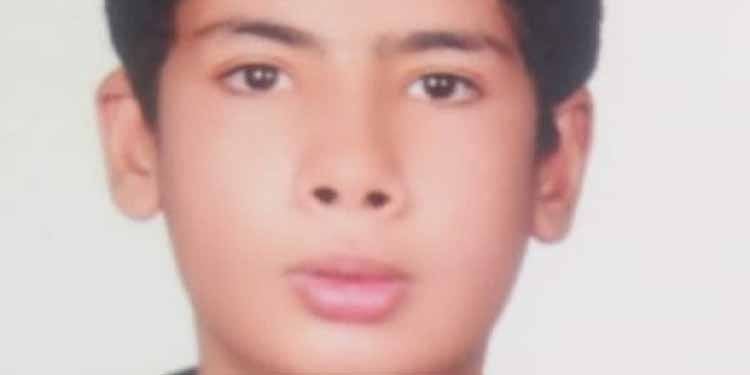Amnesty International issued an urgent appeal on Monday to save the life of a young Iranian man who is facing imminent execution for a crime he allegedly committed when he was 17 years old.
Responding to the Iranian authorities’ plans on 28 June to execute 20-year-old Hossein Shahbazi, who was convicted of a murder that took place when he was just 17 years old based, in part, on “confessions” obtained through torture, Deputy Regional Director for the Middle East and North Africa at Amnesty International, Diana Eltahawy, said:
“Iran’s authorities must immediately halt the execution of Hossein Shahbazi scheduled for 28 June. Using the death penalty against someone who was a child at the time of the crime is prohibited under international human rights law and violates Iran’s international obligations. Going ahead with this execution would be an abhorrent assault on children’s rights and would make an absolute mockery of justice.
“The Iranian authorities must quash Hossein Shahbazi’s conviction and sentence and grant him a fair retrial in full compliance with the principles of juvenile justice, excluding coerced ‘confessions’ and without resorting to the death penalty. We also call on the international community, including UN bodies and the EU and its member states, to urgently intervene to save this young man’s life.”
According to Amnesty International, Hossein Shahbazi was arrested on December 30, 2018 and sentenced to death on January 13, 2020 after a grossly unfair trial before Branch 3 of Criminal Court One of Fars province.
The rights group said that following his arrest, Shahbazi was denied access to a lawyer and his family for 11 days while detained and interrogated in the Investigation Unit of Iran’s police (Agahi) in Shiraz, Fars province.
He was then transferred to a juvenile detention facility but was denied access to his family for several days, after which he was allowed a visit from his mother.
During this visit, he had bruises on his face and appeared to have lost weight. He is currently imprisoned in Adelabad prison in Shiraz.
Amnesty International reported that he was convicted, in part, based on “confessions” that he said he made after being subjected to torture and other ill-treatment at the Agahi detention centre.
His conviction was upheld by the Supreme Court on 16 June 2020. In the verdict, reviewed by Amnesty International, the judicial authorities acknowledged that he was under 18 at the time of the crime, but stated that he had attained mental growth and maturity, according to an examination carried out by the Legal Medicine Organization, a state forensic institute.
Iran is among the few states that execute juvenile offenders, in violation of its obligations under the International Covenant On Civil and Political Rights and Convention on the Rights of the Child.
“No child shall be subjected to torture or other cruel, inhuman, or degrading treatment or punishment. Neither capital punishment nor life imprisonment without the possibility of release shall be imposed for offenses committed by persons below eighteen years of age,” the convention notes in Article 37 (a).
Authorities hanged five juvenile offenders in 2020
However, Iran’s judiciary mercilessly issues and implements death penalties against ‘persons below eighteen years of age.’
In 2020, Iranian authorities hanged at least five juvenile offenders, including Shayan Saeedpour, Majid Ismaeelzadeh, Arsalan Yasini, Moayyed Savari (Shia’ pour), and Mohammad Hassan Rezaei.
All these executed persons had been detained and sentenced to death for crimes allegedly committed under the age of 18. Indeed, some were kept in prison for a long time. For instance, Mohammad Hassan Rezaei was behind bars for 12 years, and authorities executed him in Lakan Prison in Rasht, the capital of the northern province of Gilan, on December 31, 2020.
Furthermore, Iranian interrogators killed several inmates, who had been arrested below 18 years of age, under torture. In April 2020, authorities tortured juvenile offender Danial Zeynolabedini to death in solitary confinement in Mahabad Prison. Two days earlier, he had called his family from the prison, saying, “Come and save me.”
It is time for international organizations to hold the Iranian government accountable for its gross and systematic violations of human rights, particularly children’s rights. The United Nations, UN Human Rights Council, UNESCO, and other rights organizations must pressure the clerical regime to respect the people’s fundamental rights of life and stop executions.











